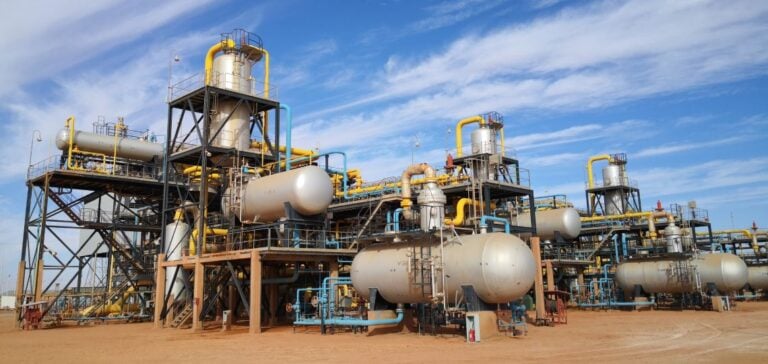Algeria continues its strategic development with the support of Sinopec, a key player in the global energy sector. This collaboration is marked by initiatives aimed at enhancing safety, protecting the environment, and supporting local communities, particularly in the Zarzaitine oilfield.
A structured framework for safety and environment
Sinopec allocated $3.12 million to improve safety and environmental protection measures on its Algerian sites. Among the actions undertaken, an electrical safety committee was established to oversee operations in the Zarzaitine oilfield. This committee conducted 42 health, safety, and environment (HSE) inspections, demonstrating a consistent commitment to rigorous industrial risk management.
Environmental efforts include green construction projects aimed at preserving biodiversity in desert areas. These initiatives align with Algerian regulations and international standards.
Development of local infrastructure
As part of its social commitments, Sinopec also contributed to critical infrastructure projects. The potable water pipeline built in the Tamanrasset region represents a major achievement, providing a sustainable solution to water shortages affecting around 50,000 residents.
Simultaneously, wells were renovated in desert areas to ensure access to clean water for local communities. These initiatives strengthen Algeria’s strategic role in regional projects while improving living conditions.
Cooperation focused on human resources
The integration of local talent is at the heart of this partnership. Nearly 1,000 jobs have been created in the Zarzaitine oilfield, offering Algerian workers career and training opportunities. This approach not only supports the development of the oil sector but also enhances local skills, which are essential for sustainable growth.
A model for energy partnerships
The partnership between Algeria and Sinopec reflects a collaboration model where economic investments are closely tied to environmental and social challenges. By balancing natural resource exploitation and sustainable development, this model could serve as a reference for other international partnerships in the oil sector.






















